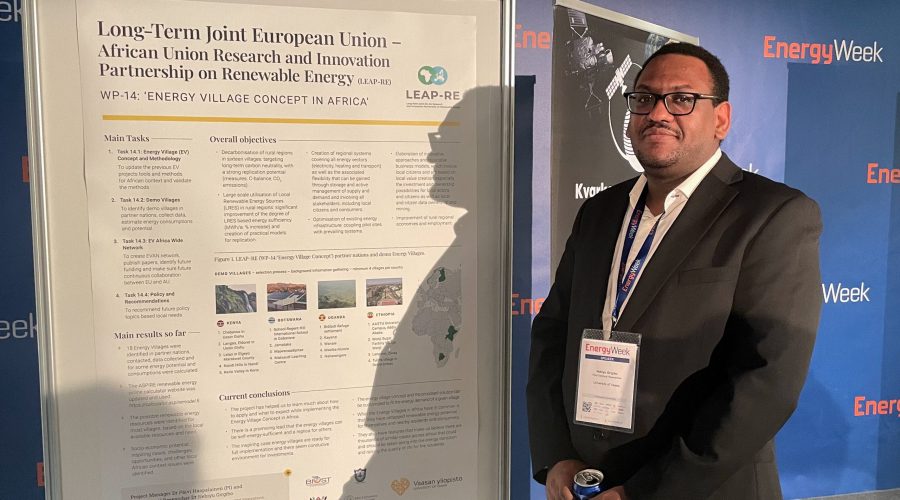The SolChargE consortium seeks to leverage renewable solar energy to power a decentralized transportation hub (DTH) and vehicles with little-to-no negative impacts on the climate (Figure 1). Doing so will not only permit rural communities in Ethiopia and South Africa to easily access reliable transportation technologies capable of improving their working lives. It will also empower them to utilize vehicles which (as opposed to oft-used combustion two-wheelers) pose no threat to their health.

In order to facilitate test sites in Ethiopia and South Africa, great progress was achieved. During workshops on the ground in the region of Assela in Ethiopia, we were able to gather the priority of reasons for individual mobility. Additionally, the future operators were trained on the technical specifications of the electric car (Figure 2). Together with the local stakeholders, we chose a test site for the decentralized transportation hub, where the aCar (Figure 4) is running in an on-demand operation model for agricultural purposes but also suits as a vehicle supplying individual mobility needs. The aCar is currently charged by the grid with the future standalone solar charging station being developed.
In South Africa, a first prototype for the standalone solar charging station is already designed and built. The charger as well as the batteries are positioned on a moveable rack, which enables to easily place the charging station at different photovoltaic installations. The standalone charging station is designed to suit the requirements of the electric vehicle Mellowvan (Figure 5).


Figure 2: Operator and technician training and workshops with local communities in Ethiopia.



Figure 5: The standalone charging station together with the electric three-wheeler Mellowvan.




